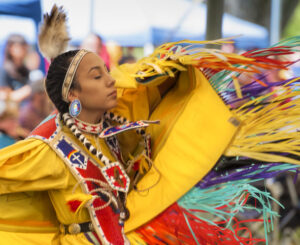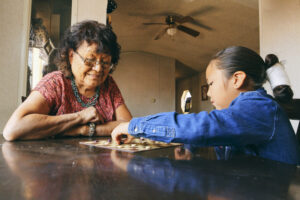The Importance of the Indian Child Welfare Act (ICWA)
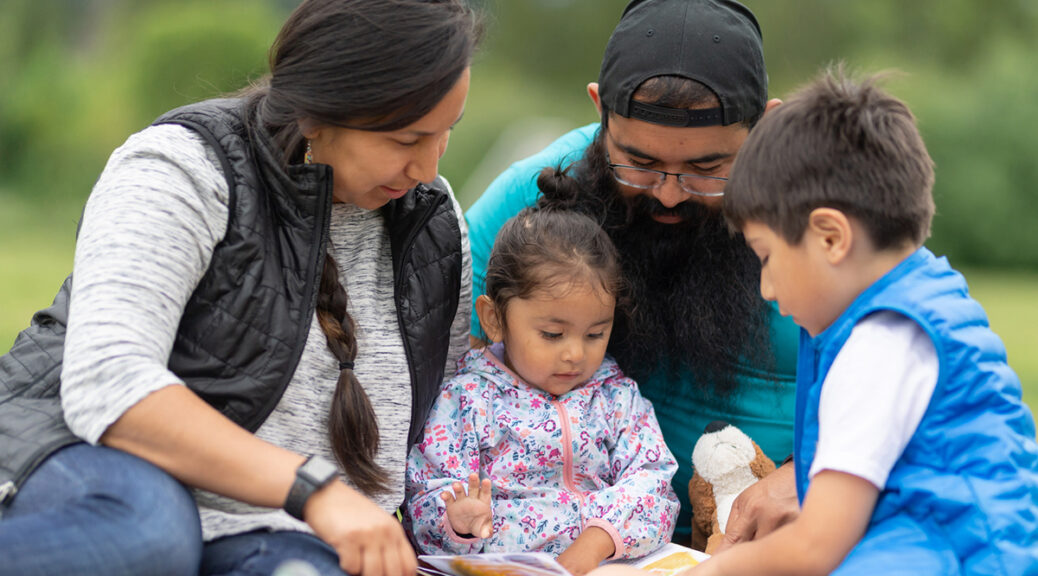
At KVC, everything we do drives toward connection. And that commitment to connection includes striving towards culturally attentive care for everyone we serve, regardless of their background.
Why the emphasis on culturally attentive care? In Kansas, about 40% of the people we serve are Black, indigenous and people of color (BIPOC) whereas only 14% of Kansans are BIPOC. This disproportionate rate of child welfare involvement must be addressed. We also know BIPOC families who experience child welfare also have more challenges related to placement stability and timely reunification or permanency as compared to their white counterparts.
We are focused on honoring individuality while working collaboratively in diverse and inclusive groups to ensure healthy childhoods and families throughout our communities. In that spirit, our team takes great care to ensure the children we serve remain in communities and cultures where they have roots.
While the United States is stronger because of rich cultural diversity, we must also acknowledge that the United States has oppressed and restricted some groups because of their race, ethnicity, religion, culture, language, traditions, etc. This is also true throughout the history of child welfare.
What happens when children are involved in these conflicts and forced to leave their families and heritage behind for the sake of another culture? This is a reality of our country’s past, as Native American children were separated in an attempt to eradicate native culture by assimilating their children into white ideals.
To resolve this specific conflict between cultures, the Indian Child Welfare Act (ICWA) was set in place to rightfully protect the children of native communities from being taken from their homes. Let’s explore ICWA’s significance and how it impacts our work at KVC.
What is the Indian Child Welfare Act (ICWA)?
As a federal law, the Indian Child Welfare Act ensures State guidance is provided to regulate the welfare cases involving child abuse, neglect, and adoption. Congress enacted ICWA in 1978, and it remains in place today.
What is the History of the Indian Child Welfare Act?
Since the founding of the United States, there have been movements and actions taken to undermine native tribes in our country. The actions of the United States government to forcibly separate indigenous children from their families, communities and culture has resulted in generational and cultural trauma that we all still feel today.
One particular instance occurred in the late 1800s and early 1900s when native children would be forcibly taken from their families, their tribe and their home. Afterward, they would be placed in government- or church-operated boarding schools where they would endure any number of teaching techniques, many harmful, to assimilate the children into mainstream white American culture. Children were not allowed to speak their native languages and were forced to cut their hair, give up their traditional clothing, take English names and replace their traditional religious practices with Christianity.
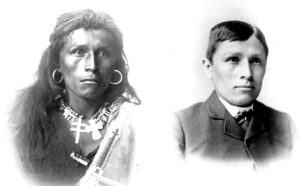
Courtesy of the Cumberland County Historical Society, Carlisle, Pennsylvania & the National Museum of the American Indian
This photo shows Navajo student Tom Torlino when he entered the Carlisle Indian Industrial School in Carlisle, Pennsylvania, (left) and then three years later.
In the 1930s, most of the boarding schools involved in these programs were shut down and the child welfare system was created. During this period, the removal of native children from their land became prohibited. However, a prejudice remained for the tribal way of life and continued affecting the lives and wellbeing of their native children.
How was ICWA Created?
Angela Hedrick, Vice President of Operations for KVC Kansas, explains that in the 1970s, the Association of American Indian Affairs began exploring why a large percentage (about 25-35 percent) of native children were living outside of their family home. Native children were removed from their homes 25% of the time. Compared to just 5% of non-native children, it’s a startling statistic. Eighty-five percent of the removed indigenous children were placed outside of their extended families and communities, even when fit and willing relatives were available.
 The Association found two reasons for this disproportionate removal and separation of native children from their families. First, the impact of federal boarding schools and dormitories. Second, the Association pointed to a remaining prejudice among child welfare professionals and noted a lack of understanding of tribal life.
The Association found two reasons for this disproportionate removal and separation of native children from their families. First, the impact of federal boarding schools and dormitories. Second, the Association pointed to a remaining prejudice among child welfare professionals and noted a lack of understanding of tribal life.
The Indian Child Welfare Act was passed in 1978, and for the first time in American history, laws were created to protect native children.
Curious to learn more about the history leading up to the Indian Child Welfare Act and how it works within our country and our child welfare system today? KVC offers an ICWA training class, which you can complete virtually.
What Purpose does ICWA Serve?
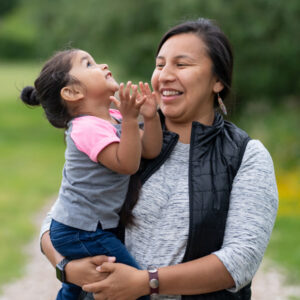 With ICWA in place, the mistreatment of Native American families (specifically concerning their children) could begin to be rectified. These children would no longer be torn away from their family, community, and native way of life because of the misunderstanding and prejudice against them. Instead, the law would now work diligently to help provide resources for families to stay safely together.
With ICWA in place, the mistreatment of Native American families (specifically concerning their children) could begin to be rectified. These children would no longer be torn away from their family, community, and native way of life because of the misunderstanding and prejudice against them. Instead, the law would now work diligently to help provide resources for families to stay safely together.
As the mediator between native families and the welfare system, KVC works with the lawful guidance and the requirements set forth by ICWA to ensure that “active efforts are made with the child’s family before the child is removed,” describes Kevin McKenzie, Legal Counsel for KVC Kansas.
Where welfare professionals often take “reasonable effort” to return a child to their family, McKenzie reinforces that “active efforts” are a significant part of the extra steps taken by welfare professionals to uphold ICWA standards. While reasonable efforts create an opportunity for welfare professionals to find help for the parents or caregivers of the child, active efforts taken by these professionals go above and beyond to remove any foreseeable obstacles to safely keep children with their families.
Further, McKenzie mentions that if a child is removed from their parents or caregivers, “ICWA sets specific factors in place for the child to be placed with another family member, another member of the tribe or with someone of the tribe’s preference.”
To keep native families together, and give the tribal court system and community a say in their children’s wellbeing, ICWA created a much-needed opportunity for positive change in the social work system.
Legal Challenges
The story for tribal communities continues today. A lawsuit, Haaland v. Brackeen for the Indian Child Welfare Act, is currently undergoing a trial within the Supreme Court.
Why would ICWA be challenged? McKenzie says, “There are those questioning the current framework and the constitutionality of ICWA, and whether it violates the Equal Protection clause by treating children and families differently based on ancestry and inappropriately requires states to go through extra measures to place a child.”
While it’s true that extra measures are taken to place a child under ICWA, the outcome of the trial will not affect the cultural sensitivity that KVC gives when placing a child in a culturally appropriate home.
 With this trial occurring, change for native communities is ongoing yet again. However, ICWA brought light to many actionable changes that needed to happen. To stay in the know about the ICWA trial and gain extra insight into what it means for our nation’s future, consider tuning into This Land, a podcast that takes a deep dive.
With this trial occurring, change for native communities is ongoing yet again. However, ICWA brought light to many actionable changes that needed to happen. To stay in the know about the ICWA trial and gain extra insight into what it means for our nation’s future, consider tuning into This Land, a podcast that takes a deep dive.
Culturally Aware Care at KVC
We come to the ICWA conversation with a clear stance. KVC Kansas fully supports the upholding of ICWA and joins numerous tribal nations, native organizations, states, congresspeople and other child welfare organizations in expressing our support. We believe ICWA is necessary to ensure every native child has every available opportunity to remain connected to their tribal community and culture. KVC sees firsthand how ICWA is vital to preventing additional trauma related to youth being removed from their community.
We also recognize the profound impact racism and other biases have on the health and wellbeing of children, families and communities. KVC Kansas commits to creating a positive, supportive culture where all are welcome and to providing the highest quality services to all children, adults and families.

